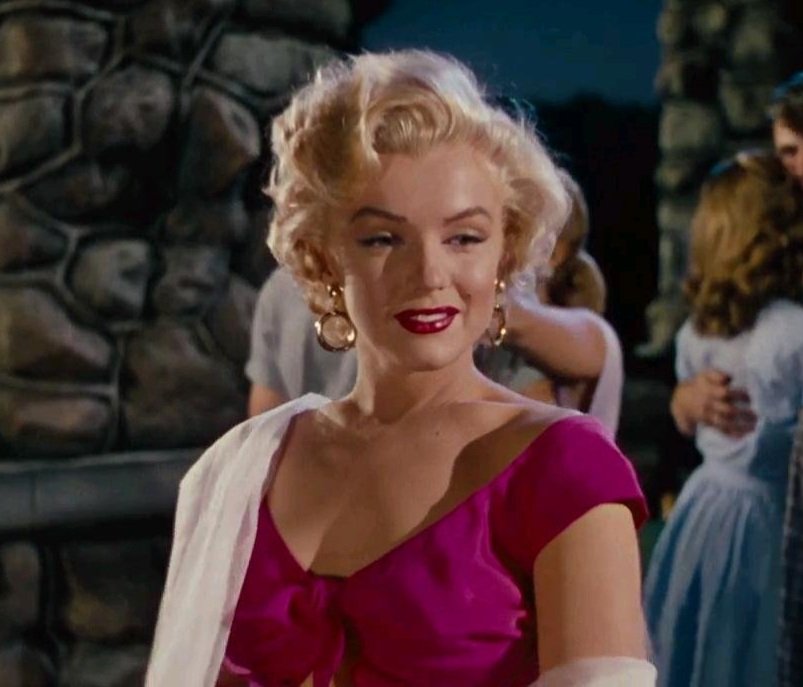Niagara (1953)
Niagara was the film that made Marilyn Monroe a massive star — and perhaps more importantly, where she firmly captured the exaggerated, seductive persona she would come to be known for. She plays Rose, a blithely malicious wife to her husband George (Joseph Cotten). Rose is seeing another man, Patrick (Richard Allan), and they plot to kill George and run off together. But when the murder scheme goes wrong, Rose finds herself the one in danger instead.
Monroe is at her best in her dramatic roles as a manipulative menace, though Niagara is a departure from her performance the previous year in Don’t Bother to Knock. There she played Nell as manipulative in a way almost beyond her own control; Nell suffered trauma, drew within herself, and developed an unstable identity as a result of an unmanageable psychosis. In Niagara, though, Rose’s duplicity is all of her own making. She toys with her husband, plays fragile when it helps her get what she wants, and takes great pleasure in making everyone around her conform to her tempo. It’s hard to imagine her Blonde avatar, Ana de Armas, didn’t draw from Rose for her own performance as a callous, devious wife in Deep Water.
Physically she assumes her infamous sexpot image. The breathy voice is in place, as are the drooping eyelids, and she walks around swaying her hips as if she can barely stand upright. The scene in which she emerges from her hotel room in that pink dress is an announcement of this persona, an expression of the power Monroe knows she possesses as a function of her beauty. It’s a breathtaking scene, almost distressingly so; her allure is so monumental it feels as if she was knowingly creating an eternal image in real time. There’s a ghost-like, ethereal quality to it, as if she exists on a different plane than everyone else in the scene, and sees something that they cannot both within the film and beyond it.
It is interesting to note that the film, and moment, where her sex symbol status comes into focus is one in which she is using that image to distract those around her and achieve her own aims. The erotic icon we see on screen was always a deliberate choice by Monroe, not something thrust upon her.
The Monroe performance here is forceful, and at times a burden for Niagara. She is so overpowering that it can take away from the momentum of the plot, and the movie is a bit more light on its feet when she departs the screen. Later she would refine her command of the camera, delivering equally compelling displays while blending more seamlessly in to the atmosphere of her films. But Niagara is a dramatic step up for Monroe, and a triumphant declaration to the world that there was new royalty in Hollywood.
Rating: 3.5/5

